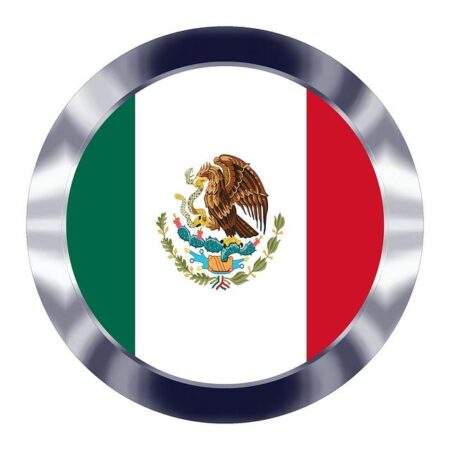Bank of Canada Governor Tiff Macklem Carney cautions that a fresh U.S.-Canada trade agreement is far from imminent, highlighting ongoing economic and political challenges, reports The Globe and Mail
Browsing: Canada
Google has just launched Gemini for Home in Canada, marking an exciting leap beyond the US! Now, Canadian users can dive into advanced smart home features and experience seamless AI integration, transforming their connected living like never before
Flu cases are skyrocketing across Canada, with children hit hardest by the outbreak, raising alarm over growing strain on health-care resources. Hospitals are overwhelmed with a surge in admissions as officials urge everyone to stay vigilant and get vaccinated without delay
Canada is gearing up to launch formal talks with the U.S. this January, aiming to revitalize the existing free trade agreement. Officials have confirmed that these discussions will zero in on addressing key trade challenges and strengthening economic collaboration between the two countries
Canada has stood resolutely behind the US exemption from the global minimum corporate tax deal, emphasizing the power of strong economic partnerships and advocating for fair and effective tax enforcement, Financial Times reports
Scandium Canada proudly presents its annual review, revealing thrilling breakthroughs in scandium exploration and dynamic new strategic partnerships. Dive into the report to discover the company’s remarkable growth and bold vision for the future
Get ready for exciting updates at Parks Canada in 2024! With refreshed passes, permits, and fee structures now in place, it’s easier than ever to explore our breathtaking national parks and historic sites. Don’t miss out-discover the new pricing and requirements to enjoy seamless access across the country.
Canada’s population experienced an unexpected decline in the third quarter, its first drop since the pandemic lockdowns. This decrease, fueled by lower immigration and a slowdown in natural growth, sparks crucial questions about the path ahead for the nation’s economic recovery
Gros Morne National Park, a stunning UNESCO World Heritage site in Newfoundland, enchants visitors with its awe-inspiring fjords, timeless rock formations, and diverse wildlife. Managed by Parks Canada, it offers exciting hiking trails, unforgettable boating excursions, and vibrant cultural experiences to enjoy throughout the year
The U.S., Canada, Australia, and China have all issued travel advisories for Bali, drawing attention to recent safety concerns and natural disasters. Travelers are urged to stay informed and exercise extra caution when planning their visit to this stunning Indonesian paradise
Canada is supercharging its Climate Competitiveness Strategy with an ambitious push to dramatically cut emissions from key methane sources. These exciting new initiatives aim for significant reductions, highlighting the country’s strong commitment to creating a sustainable, low-carbon future
Skate Canada is pulling back from hosting events in Alberta in response to the province’s new sports gender law, sparking significant concerns about inclusivity and the safety of athletes. This move will disrupt upcoming competitions and profoundly affect local skating communities
Rapid population growth in Atlantic Canada hides a concerning truth: living standards are barely budging, reveals the Fraser Institute. Despite more people making the region their home, economic progress and quality of life have stalled, raising urgent questions about the future of sustainable development
United Airlines is joining forces with Air Canada, American, Delta, Southwest, and others to launch a groundbreaking policy overhaul set to transform U.S. air travel by 2026-bringing thrilling new benefits and smoother journeys for passengers nationwide!
Goalkeeper LĂ©a Palacio-Tellier has been named Canada Soccer’s 2025 Futsal Player of the Year, recognizing her outstanding talent and crucial role in propelling Canadian futsal to new heights on the world stage
Rick Ekstein sounds the alarm as Mark Carney’s provocative comments ignite a sharp rise in antisemitism, raising urgent concerns about the consequences for Canada. The National Post explores the mounting tensions and their profound effects nationwide
Ottawa’s groundbreaking legislation opens the door for several celebrated Americans to embrace Canadian citizenship, honoring their deep cultural ties and remarkable contributions. This bold move sparks an exciting conversation about national identity and the evolving landscape of immigration policy
Mexico and Canada are turning up the heat on former President Trump’s trade policies, seizing the opportunity to leverage affordability and intensify pressure as they push for better terms in North American trade talks, sources tell Politico
In “Is This Polar Bear Town Canada’s Key to the Arctic?” The New York Times explores how Churchill, Manitoba-a vibrant hub for polar bear conservation and a gateway to the Arctic-is rapidly becoming a vital player amid shifting climate realities and evolving geopolitical challenges
Team Canada is gearing up to powerfully boost its lineup with the addition of Tom Wilson to the Olympic roster. Known for his intense physical play and uncanny ability to score, Wilson’s relentless determination and veteran savvy make him a vital powerhouse on the international stage




















